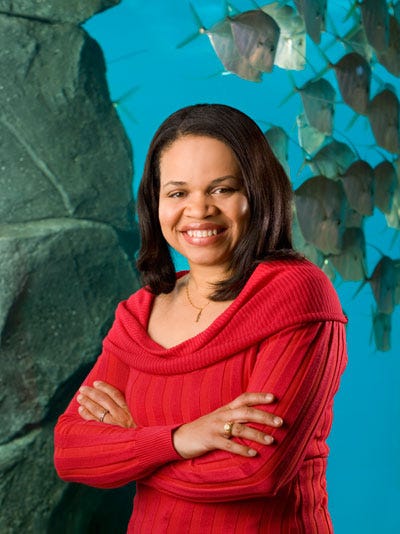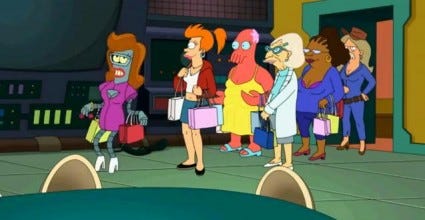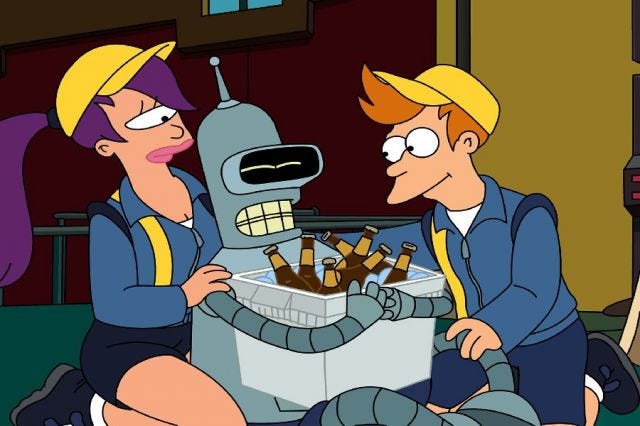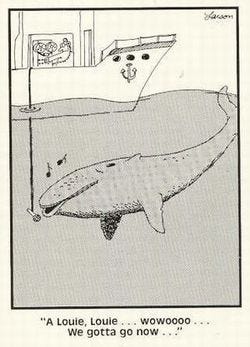So What, Who Cares (vol 3, issue 7) What retailers will have to do to woo comparison shoppers
Hello!

After five years of drought and one rather disappointing El Nino winter, we in Northern California are in the midst of a wet spell and it is relentless. The beaches have been amazing -- we spent an afternoon at San Gregorio state beach chasing driftwood as it swirled through the estuary and to the tide. Oceans bring me to Ashanti Johnson, PhD. She was the first black person to earn a PhD in oceanography from Texas A&M and she's become an advocate for better educating people as to the opportunities available in the earth sciences:
“To some extent, my community [of scientists] has not done the greatest job in letting the public know about career opportunities in earth system sciences. If you’re smart, you’re told you can be a doctor or lawyer… but people don’t know what a geologist or oceanographer does.”
Dr. Johnson has founded the Minorities Striving and Pursuing Higher Degrees of Success in Earth System Science (MS PHD'S®) initiative, which has helped 175+ minority college students majoring in earth system science build a network with minority scientists and find jobs. And she's researching the distribution of radionuclides in the Savannah River estuary, as part of a model to determine how radioactive materials move through aquatic systems after nuclear accidents.
*

The Internet has changed shopping -- by making shoppers better educated. This news thrills my inner child, the one who proudly put Penny Power posters on her bedroom door like the juvenile retail nerd she was. Apparently, people who grow up with smartphones and search engines have no problem doing a lot of comparative shopping. According to HBSC economist James Pomeroy, "digital natives" are going to exert price pressure on retailers in a number of ways:
This may come via greater consumer information (including comparison websites), improved supply chains, increased access to alternative products or new technologies that are cheaper.
Digital natives are also tougher to reach, and retailers face the challenge of how to get out in front of an audience that's used to tweaking and curating their content to their own preferences.
So what? Consumers can walk into any store, look at a product, pull up an app to see what that product goes for on Amazon.com, then decide whether they're going to buy it in the store or one-click order from Amazon Prime. I'm using Amazon as an example -- for one thing, it's got apps which make price-checking super-easy -- but the price-check behavior is so common now, there's an entire genre of retail reporting around "showroom" woes at big-box stores. The point is, a shopping segment that's fine with e-commerce and price comparisons is a tough one to woo.
Who cares? Retailers do. Unless a retailer can lock down an exclusive relationship with a supplier, retailers are going to have to find another compelling reason for shoppers to give them money.

There are plenty to choose from, all of which downplay price (which is a losing proposition, because there will always be someone undercutting a price) in favor of some broader benefit: The "shop local" movement which shows how the money people spend goes back to the community; the "third place" idea where the storefront doubles as a social space or an educational space; the "added value" space where the retailer offers related products and services; the "customer service" experience where personalized attention is a given for everyone.
The questions to answer are these: Can chain stores actually provide any of these models, all of which are "high touch" in the time and effort required of employees, and therefore higher in employee overhead? And has the attitude of "experience is the real luxury marker now" trickled down to the mass consumer level yet? Or are mainstream consumers still looking at price as their primary driver, tax bases and shopping experiences be hanged?
*

Your pop culture note of the day: Research has discovered that when whales breach, they're really just saying, "Hello." My reactions to this news, in no particular order:
A. Your move, Adele
B. Your move, Lionel Richie
C. I need to re-read Fluke by Christopher Moore because this news fits within that book's reality.
For those of you who aren't familiar with @theauthorguy, he wrote a hilarious book about cetacean scientists and the unintended side effects of studying whales in Hawaii, and if you haven't read it, remedy that. Then imagine humpback whales all leaping out of the air because that's how they say, "Hello from the other siiiiiiiiiiiiiiiiiiiiiiiide," while other whales below the water are all, "Oh my God, I love her."
*
FOOTER TEXT, BECAUSE THIS IS THE END OF THE EMAIL: Thank you all for reading! It is delightful to know you're all out there -- now add to the army of readers by telling your pals to subscribe! Talk to me via Twitter because I love hearing from you. And I have at last noticed that you can send me email via TinyLetter, so I'll finally answer those emails! What a time it is to be alive.

